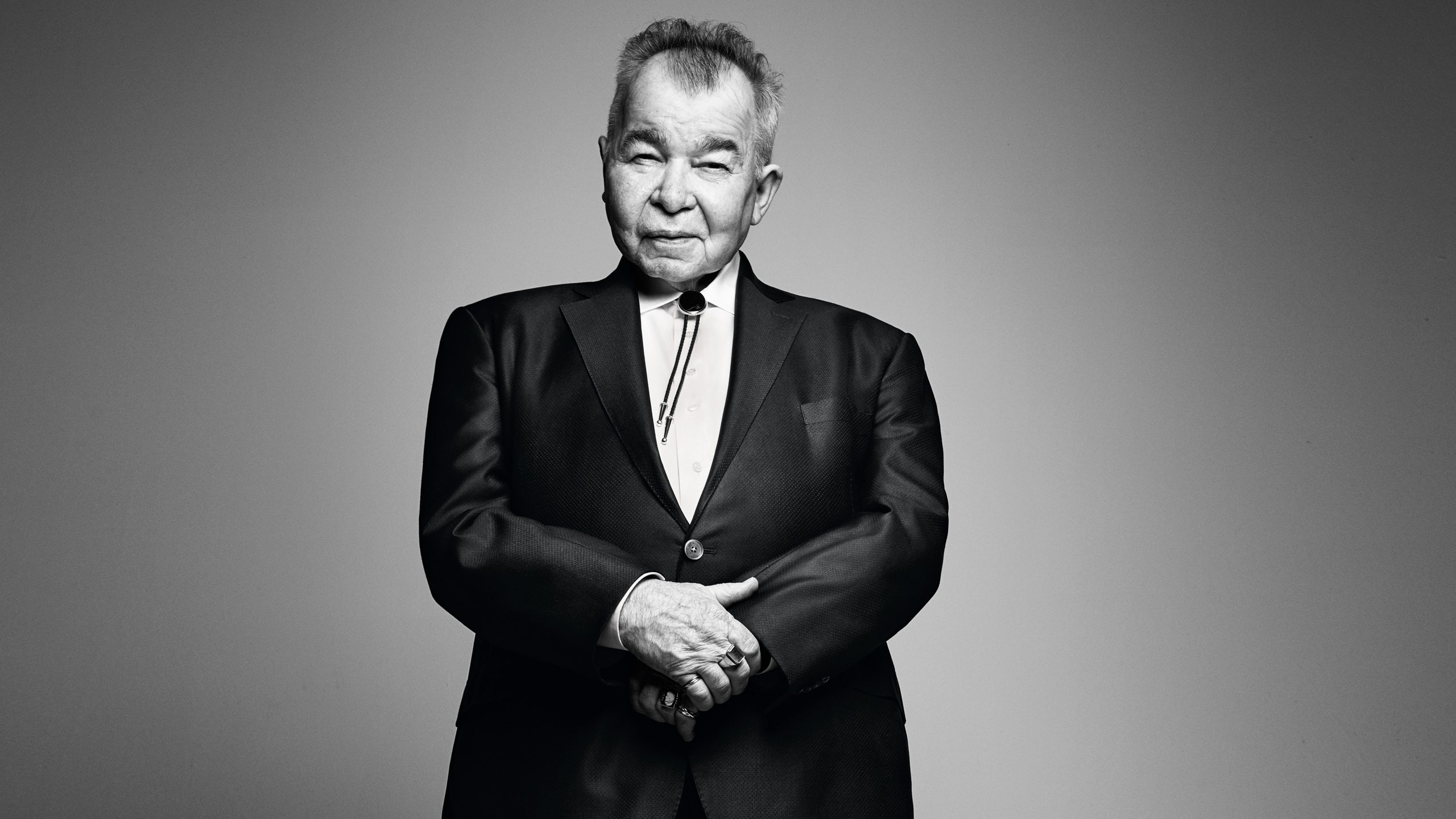This week, John Prine released The Tree of Forgiveness, his first album of original songs in 13 years. The producer on the record, Dave Cobb, had this to say when we spoke a few months back: “I want to be John Prine when I grow up.” There’s a good reason Nashville’s new establishment still worships at the altar of Prine after all this time. Prine has quietly influenced generations of Americana musicians, from Bob Dylan to the superstar roster that appears on Forgiveness: Jason Isbell, Amanda Shires, and Margo Price, among others. “Prine's stuff is pure Proustian existentialism. Midwestern mindtrips to the nth degree,” said Dylan in 2009. (Listen to “Lake Marie” to see what he means.) Prine’s been an American treasure since his wry debut album back in ’71, and has always drawn from folk and roots traditions without any regard for genre—or for conventional singing. His pinched voice has shades of Dylan's Nashville Skyline days, and it's only grown more idiosyncratic over the years. Twenty years ago he beat neck cancer, and five years ago he beat lung cancer—“I told them, ‘Just go in there, cut it out, come back, and tell me I don't have cancer’”—and his voice actually deepened and strengthened. “Now,” he says, “it's like I can almost sing.” We talked to the living legend, featured in GQ Style spring’s “Sultans of Twang” portfolio, in the run up to the album release.
GQ Style: Why make a record now?
John Prine: My wife is managing me now. And our oldest son is running the record company. So the two of them ganged up on me and said it was time to make a record. I made them get me a suite at the Omni in downtown Nashville. I checked in there with ten boxes of ideas, just scraps of paper from over the years. And I locked myself in there for a week ‘til I came out with a record.
What would be on those scraps of paper?
An idea. Or I’d look for a consistent one—something that I’d written down more than once, something that was kinda calling out to me to write about it. I always something to get the wheels going, you know? I was never good at sitting down and saying, “Okay, let’s write a song.” I just always kinda waited for some sort of inspiration.
So would that inspiration be a phrase or a chord progression or..?
Usually a phrase. A phrase I can’t get rid of. That keeps coming back, so the only way I can get rid of it is to write a song about it or use the phrase in the song
Can you think of a phrase made its way onto the record in that way?
Yeah, the song “The Lonesome Friends of Science.” That was a secret society in my mind, and I called them The Lonesome Friends of Science having no idea what I meant by that. I just thought, “Eventually, I’m gonna write a song called that. And I remember 12 years or so ago, they took Pluto and said it wasn’t a planet. And that sort of ticked me off, so I just let it simmer on the back burner for a long time until I could write a song about it. And “Lonesome Friends of Science” gave me the opportunity to do that.
I like that you’re sticking up for Pluto.
I mean, they made us memorize the planets when I was in elementary school . And then they tell me one day, “Sorry, this is not a planet.” And then to add insult to injury, they came back a year and a half later and call it a dwarf planet. Like they haven’t ruined it enough. They said: “Okay, you can be a planet, but you’re a dwarf.” I mean, somebody’s gotta stick up for Pluto.
Two songs on the new record are 30 years old. Which ones?
The one I wrote with Phil Spector, “God Only Knows.” I wrote another verse and a bridge to it because it was never quite done. We wrote that together back in ’78. I went to see him and we wrote a song called “If You Don’t Want My Love.” And then when I went back to play him that song after I’d put it on my record, as I was leaving he wanted to write another song—and that was “God Only Knows.” So that one and the one I wrote with Roger Cook, “I Have Met My Love Today.” Kind of a Buddy Holly sort of song. I could never sing that one. We were pitching it to people around Nashville and nobody ever bit. And I always liked the song. Last summer I started singing the song and it just felt natural to go in and cut it.
What was Phil Spector like?
Uh, crazy.
You recorded this new one with Dave Cobb, didn’t you?
Yeah. And That worked out great. Dave put me and my guitar way out front. I don’t know if I’ve ever had a record that I’ve done like this, where it’s just basically me and the guys are kind of playing around me.
Did you do it in RCA Studio B?
Studio A. The big one. Really great. I donated a Christmas tree to it. We cut in July, and I keep a Christmas tree up all year long in the office, so we dragged that over there and put it in Studio A, and when we were done with the record they didn’t want the tree to leave. So I donated it to the studio. We’d turn all the lights off and just sing to the Christmas tree.
Why do you keep a tree up year-round in the office?
I like ’em! I don’t like to see Christmas trees torn down. I used to keep one in my house all the time. But my wife has made me move it over to the office.
Where do you think you fit into the lineage of American roots music?
I don’t concern myself with where I fit in. I just keep my head down and keep doing whatever it is I’m going. They change the name of it every ten years. And right now it seems like, without changing anything I ever did, I fit right into the Americana thing because it’s stuff mixed together: all different American musics mixed together. I’ve been doing that anyway. I never fit in with straight country. I never really fit in with rock ’n’ roll. I’ve always been somewhere in between all this stuff. And right now, Americana seems to be accepting of that.
I got a chuckle out of “When I Get to Heaven” on the new record: When you get to heaven you’re having a vodka and ginger ale, and a cigarette that’s nine miles long. How did you write that song?
I’ve had cancer twice, so I can’t smoke. So I thought, “Where is the only place I could get away with smoking?” There couldn’t be any cancer in heaven. So I’m gonna have a cigarette that’s nine miles long and my favorite cocktail.
From Alan Jackson and John Prine to Chris Stapleton and Jason Isbell.

